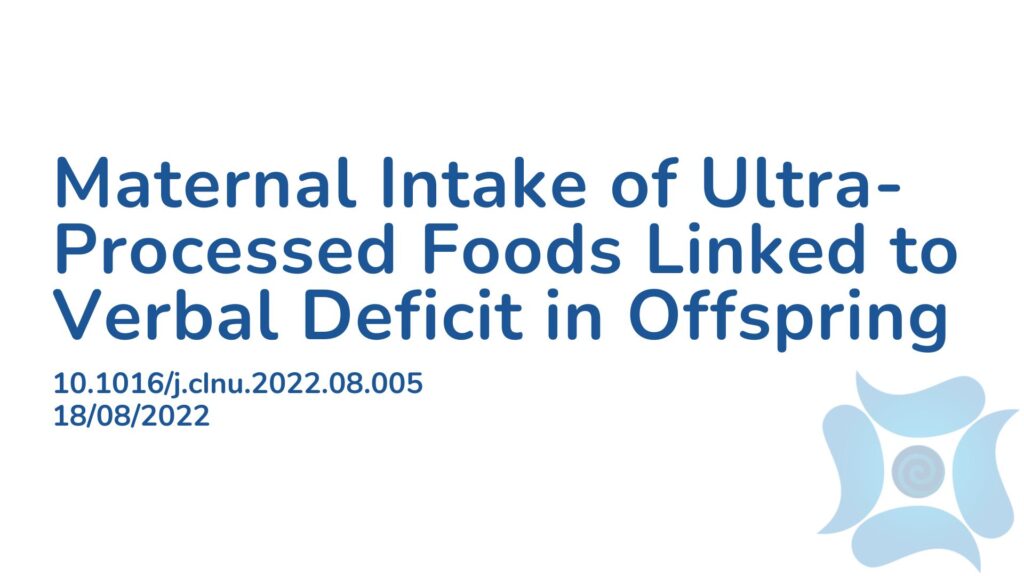Summary:
In recent years, the rise in ultra-processed foods (UPF) consumption, known for their industrial formulations and additives, has raised concerns due to their potentially poor nutritional quality and harmful components. During the critical period of fetal neuro-development between 24 and 42 weeks of gestation, maternal nutrition plays a crucial role in the offsprings health. Excessive maternal intake of saturated fats may lead to neuro-inflammation and cognitive issues in offspring. While previous studies have linked maternal sugary drink intake to adverse child cognitive outcomes, research on the broader impact of total UPF consumption during pregnancy on child neuro-psychological development is limited. This prospective study aims to fill this gap by investigating the association between maternal UPF consumption during pregnancy and child neuro-psychological development at ages 1 and 4-5 years old. The study involved 2,377 pairs of pregnant women and children from a Spanish birth cohort. Maternal dietary intake during the third trimester was assessed using a food frequency questionnaire, specifically asking for UPFs. UPF consumption represented 17% of the total diet on average. Higher UPF intake, predominantly sugar-sweetened beverages, correlated with lower scores on the scale of children being verbal. These findings suggest a detrimental link between maternal UPF consumption during pregnancy and early childhood verbal functioning, underscoring its importance in neuro-development.
Abstract:
Background & aims: Maternal ultra-processed food (UPF) consumption during pregnancy may adversely affect child development. Pregnancy sugar-sweetened beverage consumption (as a part of UPF) has been associated with child cognitive dysfunction in the general population, but the role of total UPF consumption during pregnancy in later child neuropsychological development has not been studied. We aimed to analyse the association between maternal pregnancy UPF consumption and child neurodevelopment.
Methods: This study involved 2377 pairs of pregnant women and their offspring from a Spanish birth cohort (recruitment period: 2004–2008, INMA project). Dietary intake was estimated using a 101-item food frequency questionnaire in the third trimester of pregnancy. The NOVA classification was used to identify UPFs, and their consumption was calculated as the daily percentage of total food consumption and categorized into tertiles. Child neuropsychological development was assessed with the Bayley Scales of Infant and Toddler Development (1-year-old, n = 1929) and the McCarthy Scales of Children’s Abilities (4-5 years-old, n = 1679). Potential associations were analysed using multivariate linear regression models adjusted for a range of family and child characteristics.
Results: UPF consumption among pregnant women represented an average of 17% of the total diet, with sugar-sweetened beverages being the most commonly consumed type of UPF (40%). Children born to mothers in the highest tertile of UPF consumption (28.9% or more of the total diet) vs the lowest tertile (7.2% or less), showed a lower score (B = −2.29 [95% Confidence Interval (CI), −4.13; −0.46]) in the Verbal Scale of the McCarthy Scales (p-for-trend = 0.02). No associations were observed with the McCarthy Scales assessing other cognitive domains or with the Bayley Scales.
Conclusion: Of the seven cognitive domains studied, we observed an adverse association between maternal consumption of UPF during pregnancy and verbal functioning in early childhood, which is an important cognitive domain of neurodevelopment.
Article Publication Date: 18/08/2022
DOI: 10.1016/j.clnu.2022.08.005




